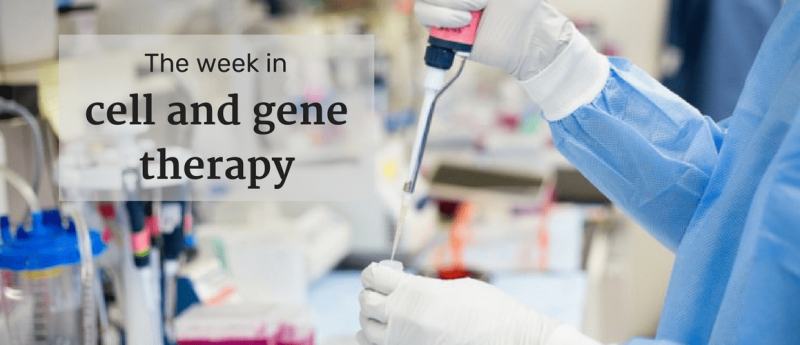Cell therapy weekly: international stem cell research collaboration seeks to advance iPSC applications in regenerative medicine

This week: the US FDA awards Regenerative Medicine Advanced Therapy (RMAT) Designation for an investigational severe hemoglobinopathies cell therapy and Gamida Cell (MA, USA) announces positive results from a Phase III trial of its advanced cell therapy for high-risk hematologic malignancies.
The news highlights:
International research collaboration seeks to advance applications of iPSCs in regenerative medicine products
FDA grants RMAT Designation for investigational cell therapy for severe hemoglobinopathies
Advanced cell therapy shows promise in Phase III trial for patients with hematologic malignancies requiring bone marrow transplantation
International research collaboration seeks to advance applications of iPSCs in regenerative medicine products
Cell and Gene Therapy Catapult (London, UK) and the CiRA Foundation (Kyoto, Japan) have jointly announced their international collaboration over a research project that will leverage their respective industry expertise to explore novel characterization methods for induced pluripotent stem cells (iPSCs) and tests to predict the potential of cell differentiation bias. It is hoped the research will advance the applications of iPSCs in the manufacture of therapeutic regenerative medicine products.
Shinya Yamanaka, Representative Director at CiRA Foundation, commented: “We are very pleased to start our first collaborative research project since the launch of [CiRA Foundation] with Cell and Gene Therapy Catapult…We hope that results of this collaborative project aimed at the advancement of the clinical application of [iPSCs] will result in substantial progress towards commercialization of regenerative medicine.”
FDA grants RMAT Designation for investigational cell therapy for severe hemoglobinopathies
CRISPR Therapeutics and Vertex Pharmaceuticals (both MA, USA) have announced their receipt of US FDA Regenerative Medicine Advanced Therapy (RMAT) Designation for CTX001â„¢ — an investigational, autologous, gene-edited stem cell therapy for the treatment of severe hemoglobinopathies, including severe sickle cell disease and beta thalassemia. CTX001 has previously been granted Orphan Drug Designation from the FDA and European Commission; it is hoped that RMAT Designation will help expedite the drug development and regulatory review processes for CTX001.
Samarth Kulkarni, CEO of CRISPR Therapeutics, explained: “RMAT Designation is another important regulatory milestone for CTX001 and underscores the transformative potential of a CRISPR-based therapy for patients with severe hemoglobinopathies. We expect to share additional clinical data on CTX001 in medical and scientific forums this year as we continue to work closely with global regulatory agencies to expedite the clinical development of CTX001.”
Advanced cell therapy shows promise in Phase III trial for patients with hematologic malignancies requiring bone marrow transplantation
Gamida Cell (MA, USA) has announced positive topline results from its multi-center, Phase III trial of Omidubicel — an advanced cell therapy product for individuals with high-risk hematologic malignancies who require bone marrow transplants. Trial data demonstrate that the time to neutrophil engraftment — a measure of how quickly the stem cells a patient receives in a transplant are established — in patients randomized to receive Omidubicel was significantly shorter compared with individuals in the control group of the experiment, who received a standard umbilical cord blood transfusion.
Mitchell Horwitz, Principal Investigator (Duke Cancer Institute, NC, USA) commented: “These results have the potential to substantially move the field forward and represent an important step toward making stem cell transplantation more accessible and more successful for patients with lethal blood cancers. Shortening the time to engraftment is clinically meaningful, as it can reduce a patient’s time in the hospital and decrease likelihood of infection.”
For more cell therapy news, read previous editions of cell therapy weekly here>>